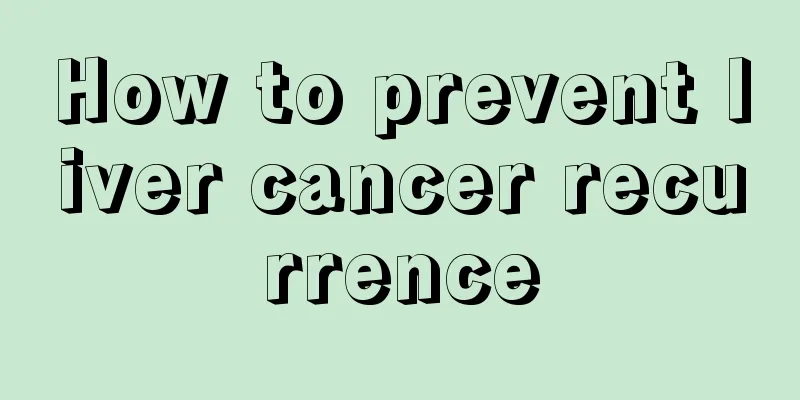How long does it take for nerves to recover

|
There are many neurological diseases, which are often caused by sequelae of nerve damage. Generally speaking, if the symptoms are relatively mild, these sequelae will gradually be alleviated after a period of recovery. It takes about two years to recover, and sometimes it may take longer. Of course, if the condition is more serious, or nerve necrosis occurs, it cannot be recovered at this time. It can be treated by certain methods. Let us understand how to treat neurological diseases. How to treat neurological diseases 1. Cerebrovascular disease: During conventional treatment surgery, a head frame is installed throughout the operation, epidural anesthesia is given, and a craniotomy is performed using a hand drill or electric drill. After the craniotomy, CT (computed tomography)/DSA (digital subtraction angiography) is used to check the results, perform aneurysm exploration and clipping, and explore the patient's hematoma, which is then removed or drainage is performed. 2. Periodic paralysis: Periodic paralysis is a group of autosomal dominant myopathies with recurrent flaccid paralysis of skeletal muscles as clinical features. Attacks are mostly accompanied by decreased blood potassium, but increased or normal blood potassium levels can also be seen. According to the changes in serum potassium during the attack and the clinical characteristics, it is divided into three types: hypokalemic type, normal potassium type and hyperkalemic type. The treatment for hypokalemic periodic paralysis is to give 30 ml of 10% potassium chloride solution orally once an hour during an attack until improvement occurs. Hyperkalemic periodic paralysis attacks can be treated with intravenous or oral glucose solution or injection of 10 to 20 U of insulin. 3. Progressive muscular dystrophy: Supportive treatment and symptomatic treatment are the main treatments. Increase nutrition appropriately, pay attention to exercise, and prevent complications. Use a support frame to help with standing and walking, massage and physical therapy to reduce contractures, and correct deformities in advance. There is no specific effective treatment. Prevention is fundamental. Drug treatment can try ATP, glucose, insulin, allopurinol, etc. or temporarily relieve the condition. Growth hormone, calcium antagonists, vitamin E, inosine, etc. can also be used. 4. Myotonic dystrophy: Currently, there is no complete cure for myotonic dystrophy. The goal of treatment is mainly to improve symptoms and slow the progression of the disease. While taking medication, it is also very important to take good care of your diet. In terms of diet, you should eat more protein-rich foods such as fish, shrimp, milk, lean meat, and fresh vegetables and fruits. Do not eat raw, cold, or spicy foods that are difficult to digest, and avoid smoking and drinking. Pay attention to weather changes and avoid catching a cold. Maintaining an optimistic attitude and participating in moderate physical exercise can also help recovery from the disease. 5. Ataxia: Acupuncture or knife treatment is commonly used. |
<<: What is the reason for feeling irritable
>>: Can I blow dry my hair if I have chickenpox
Recommend
There is blood on the toilet paper after poop
In our lives, many people suffer from hemorrhoids...
How to deal with potential complications of laryngeal cancer
Laryngeal cancer is a malignant tumor of the lary...
What are the effects of Jingkang Capsule
In today's life and work, there is a lot of p...
What are the disadvantages of sleeping with the lights on
In our daily life, we have the habit of turning o...
The dangers of blue light teeth whitening
Nowadays, technology is becoming more and more ad...
What kind of exercise is good for prostate cancer
The prostate, as a reproductive organ, has a char...
Tips on how to remove fruit stains
Normally when we eat, we always encounter a probl...
Polyps in the nose? Never underestimate it!
Nasal polyps are a common disease that poses a gr...
What is the reason for sore throat after chemotherapy after breast cancer surgery
What is the reason for a sore throat after chemot...
What are the examination measures for bronchospasm
Bronchospasm is a complication caused by many dis...
Bacteria in the throat
Throat fungus is the name of a disease in traditi...
What is the reason for swollen legs after standing for a day?
In life, many people need to stand for a long tim...
What’s the matter with itchy ears and excessive earwax?
If your ear canal is normal at ordinary times, bu...
What does photosensitive food mean? What to pay attention to
Photosensitive foods generally refer to foods tha...
How many minutes does it take for a pregnancy test to give results?
Some women do not pay attention to some behaviors...









